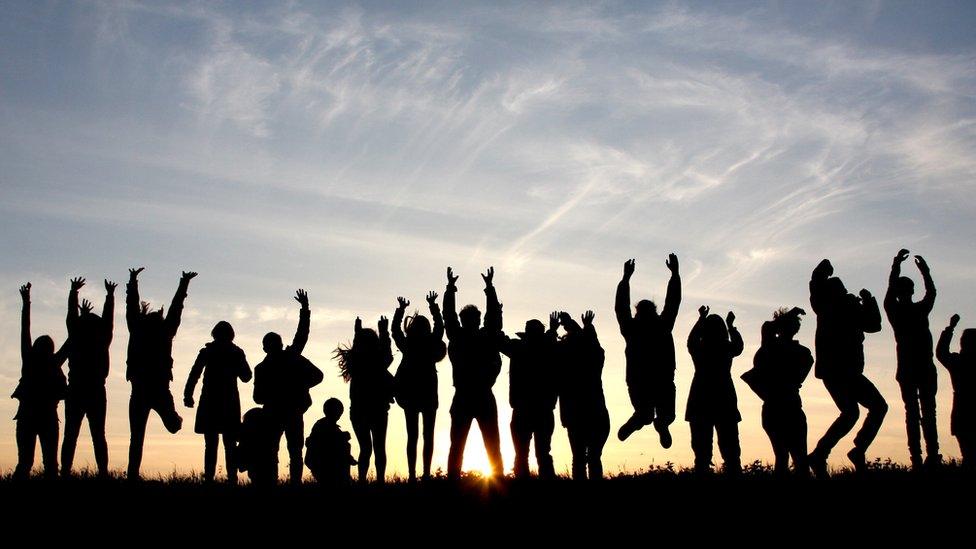Does GDP tell the whole economic story?
- Published

How can the number-crunchers get a better idea of the nation's well-being?
Answering a simple "How are you?" with an honest detailed answer may lead to an awkward silence.
After all, it's often just longhand for "hello". But the government's official number-crunchers at the Office for National Statistics genuinely care about the response.
Next week, they'll publish their statistics into how people across the country are feeling about their lives.
Have they gone soft? Not quite. They've realised that how we've traditionally measured living standards or economic well-being isn't up to scratch.
We typically turn to GDP - gross domestic product. That's the measure of how much companies, individuals and the government earn/spend/produce (in theory, each of those give the same answer), with an adjustment for exports less imports.
It measures the nation's net income, but may not tell the whole story.
First, there are things which can skew the big picture. Take the first three months of this year, when the economy grew by 0.5%, according to the latest official figures. , external
At the time, many companies were busy stockpiling components and finished goods due to fears of a no-deal Brexit.
That makes growth look stronger, but that buzz of activity reflects contingency planning rather than a response to strong demand.
And it may mean less of that activity further down the line, making growth look weaker in subsequent quarters.
Winners and losers
Even without distortions, GDP may not reflect the individual situation. The fates of government businesses and households will differ hugely in any quarter.
The ONS provides a breakdown of some details. It has recently delved deeper into households' situations with a well-being dashboard, which looks at things such as incomes, debt and anxiety levels (Spoiler alert: the most recent version shows most things on the rise).
And there'll be winners and losers across the country. The Bank of England has also doubled down on work to highlight the fate of different regions.
But then there's what is left out by GDP: basically, anything unpaid, from volunteering to housework. In other words, items that aren't termed "market activity".
Economist Paul Samuelson joked that if a man marries his maid, GDP falls. It's not so much a joke as a criticism (and not just of outdated gender stereotyping) that statisticians fail to value certain types of work.
The problem is that without payment, such work is hard to put a price tag on.
Holistic view
Feeling a bit hard done-by aside, how much does that matter, given what policymakers actually use GDP for?
The Bank of England manages the economy by setting interest rates to influence spending and borrowing, while the government uses the figures to gauge how much tax might come in.
And of course, there's a multitude of other factors - from crime to gender equality, biodiversity, access to clean energy and education levels - that hit our current and future living standards.
These are just a few of the Sustainable Development Goals that the US has spelled out. The ONS has embarked on a marathon task to identify and measure hundreds of indicators to reflect those.
They are about two-thirds of the way there - and even when they have finessed them, collecting the information on a regular basis may not be quick as gleaning GDP information.
The number-crunchers acknowledge the need for a more "holistic" gauge of our well-being.
GDP is three little letters that represents more than a trillion pounds of crucial and relatively easy to collect information on the financial state of our economy. It isn't perfect, but it still has its uses.